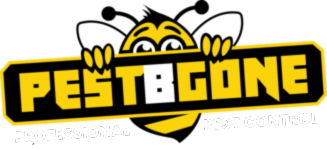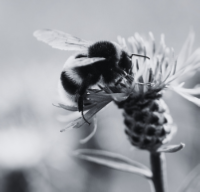
Bees
Bees are familiar insects in the garden. To many people the sound of bees buzzing from flower to flower is part of the sound of summer. Sadly, changes to farming and land management practices have not been kind to any of our bee species. In the last 70 years or so two species have become extinct and others have declined dramatically. Further extinctions of our native bee species are inevitable unless we act quickly to help them. The reason for these declines is simple; bees feed on pollen and nectar which they collect from flowers, and there are now far fewer flowers in the countryside. Hedges have been removed and marshes drained. Traditionally managed flower-rich grasslands (hay meadows and chalk downland) have been almost entirely swept away and replaced by silage and cereal fields. Over 97% of flower-rich meadows have been lost from the UK!
Bees are one of the most useful insects found in the garden. As they move from plant to plant they pick up and transfer pollen, and this is vital to the fertilisation and growth of plants. Although other insects also help fertilise plants, the work of bees is essential and without them the variety and yield of the plants we grow for food and pleasure would be much reduced. The honey bee also produces honey in hives, either in the wild, or in hives made for it by the beekeeper. European honey bees have been introduced to nearly all parts of the world by humans, but they are thought to have originated in India. Their colonies may be very large and last for many years.
The risk from bees in the house or garden is small - an occasional sting, and only if the bee is provoked. Unlike wasps, which can sting repeatedly, a sting from a bee causes fatal damage to the bee itself because the sting and part of the abdomen is removed during the stinging process causing death to the bee. The only danger from bees is the extremely rare occurrence of being attacked and stung by large numbers, and this is only likely to affect beekeepers or someone who approaches a swarm of honey bees.
Contact your local branch
Buckinghamshire & South East
01628 473062
South Gloucestershire & South West
01454 219296
WikiPest
Everything you need to know about
Bees











